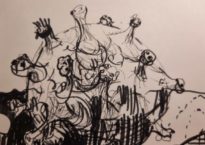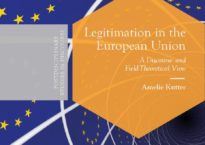Polity-Construction or How the European Union is (De-)Legitimised: A Discursive Political Sociology Perspective
The paper, presented at the 28th Council for European Studies conference in Lisbon/ISCE on 29 July, 2022, introduces a ‘discursive political sociology perspective’ that combines the theory of meaning-constitution developed in linguistically informed discourse studies with Bour-dieusian political sociology and the political theory of polity-building. It shifts attention from outcome (legitimacy) to process (legitimation) and from identification with existing EU institutions to discourse practices that only establish the means of communicating and cognizing EU politics in its potential and postnational character.



